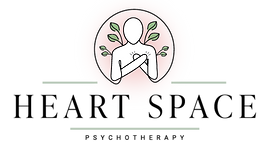Why You Feel Guilty When You Rest (And How to Heal It)
- Andreina Cheema

- Jul 1, 2025
- 3 min read
Updated: Jul 2, 2025

Feeling guilty when you rest is incredibly common, especially for high-performing, high-achieving people. Even when your body is clearly asking for rest, it can feel wrong, selfish, or lazy to actually slow down.
Let’s break it down. There’s a difference between healthy guilt, which shows up when we’re avoiding something important, and unhealthy guilt, which tells us we’re not doing enough even when we’ve already done a lot. That second kind is often what comes up around rest. And it usually stems from two core issues: social conditioning and a nervous system that’s stuck in survival mode.
1. The Belief That Rest Means You're Lazy
Many of us were raised to believe, either directly or indirectly, that rest is lazy or selfish. We learned that our worth is tied to how much we do, how productive we are, and how hard we push. Rest wasn’t modeled as something normal or necessary. It wasn’t seen as a form of care or safety.
So now, as adults, when we try to rest, it can feel deeply uncomfortable. We’ve internalized these beliefs, and we start "shoulding on ourselves". You might catch yourself thinking, “I should be working right now instead of relaxing,” or “I shouldn’t take a break because there’s so much left to do.” These thoughts create pressure and guilt, making rest feel like something you have to earn rather than a basic need. Hustle culture tells us that constant doing is the goal. So when we stop, the guilt shows up. But this guilt is not a reflection of truth. It’s a reflection of what we were taught to believe.
2. A Nervous System That Doesn’t Feel Safe Slowing Down
Even when your mind is telling you, “It’s okay to rest,” your body might not believe it. If you’ve spent years in a heightened or stressed-out state, stillness can feel unfamiliar. It might even feel unsafe. When your nervous system is used to running in survival mode, rest feels confusing. Your body stays on high alert, wondering why you’re not doing something.
That discomfort in your chest, the racing thoughts, the tension in your muscles, all of it can be misread as guilt. But often, it’s really your body struggling to shift out of that activated state. It’s not that rest is wrong. It’s that your nervous system hasn’t learned yet how to feel safe being still.
What You Can Do: A Holistic Approach

Now that you’re more aware of the beliefs you’ve internalized about rest and how your body might be reacting to it, you can begin healing on a deeper, more holistic level. This awareness opens the door to meaningful change. You can start creating new neural pathways that gently shift your mindset, challenge old patterns of guilt, and support your nervous system in feeling safe to slow down. Over time, rest can begin to feel less like something you have to earn and more like something you’re naturally worthy of.
Mentally
It is important to remind yourself that rest is not something you need to earn. It’s a basic human need. You are allowed to rest regardless of how much you’ve done. Rest doesn’t make you lazy. It makes you human. It helps restore balance and gives you energy to keep showing up for your life..
Physically
Your body needs to be shown that rest is safe. This might look like working with the breath, using grounding techniques, or practicing gentle somatic exercises. Stillness doesn’t mean danger. You are allowed to do nothing. The more you create intentional space for rest without judgment, the more your nervous system will learn how to relax. Over time, your body will no longer treat rest like a threat, and the guilt will begin to fade.
On a Soul Level
Rest is how we return to ourselves. It’s how we listen inward. When we allow stillness, we create space to hear the quiet wisdom of the heart, to reconnect with our purpose, and to remember who we are beyond the roles we perform. Your soul doesn’t measure your worth by your productivity. It just wants you to feel whole.
Therapy can support this process
Whether through somatic therapy, compassion-focused approaches, or gently rewiring old beliefs, you can learn to feel at home in your body, your mind, and your soul. You don’t have to hustle for your worth. And you don’t have to earn your rest. You simply get to come home to yourself.
If this resonates with you and you’re ready to release guilt around rest, I’d be honored to walk alongside you. Reach out to learn more or schedule a free 15 minute consultation or you can explore my website to learn more about Heart Space Psychotherapy.





Comments